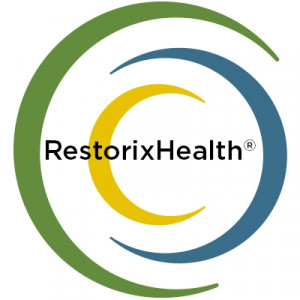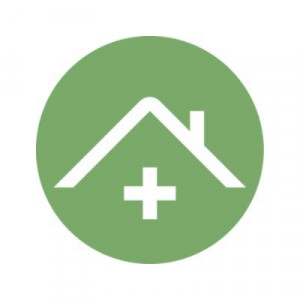Responsibilities POSITION SUMMARY
The Nurse is responsible for the delivery of quality nursing care for all patients on Acute units. The Nurse is in charge of the unit activities for each shift. The Nurse supervises the Mental Health Technicians and Licensed Professional Nurses working on the unit, administers prescribed medications and provides medication and other educational groups.
ESSENTIAL FUNCTIONS
- Completes and documents a comprehensive nursing assessment within eight 8 hours of admission.
- Identifies a patient’s needs, problems, capabilities, and limitations, which are supported by the recorded assessment data and reflect knowledge of the arts and sciences with particular emphasis on biophysical and psychosocial sciences.
- Performs assessments and re-assessments throughout the patient’s stay in the facility. Quality of assessment/reassessment documentation reflects an objective overview of patient findings and outcomes.
- Assess and reassesses patient’s pain on a continuum. Quality of assessment/reassessment documentation reflects policy expectations for pain reassessment documentation within one hour of pain intervention.
- Plans individualized goal directed nursing care to patients through the use of the nursing process.
- Acts as a member of the multidisciplinary treatment team in planning care by providing input to the treatment team process.
- Plans continuity of patient care with other members of the healthcare team. Maintains open communication and promotes communication with other departments to meet daily patient care needs.
- Plans of care and progress notes reflect planning for discharge.
- Plans of care reflect plans for patient and family education regarding needs identified in the assessment.
- Use psychotherapeutic interventions to assist patients in regaining or improving their previous coping abilities and to prevent further disability.
- Uses the activities of daily living in a goal directed way to foster adequate self-care and physical and mental wellbeing of patients.
- Provides, structures, and maintains a therapeutic environment in collaboration with the patient and other healthcare providers.
- Prepares patient for discharge from treatment through providing the necessary and instructions prior to discharge and documents in a clear and concise manner.
- Documents interventions in a Master Treatment plan and in progress notes.
- Identifies abnormal diagnostic data and brings to the attending physician’s attention.
- Provides patient and family teaching if needed and in-group settings (nurse education groups, 1:1 with patient and patient family).
- Regularly reviews work in progress in order to ensure that all treatment, medications, and diagnostic tests ordered by the physician are expeditiously carried out and properly recorded.
- Follows up on patient care responsibilities and assignments left from previous shifts and report any incomplete assignments to ensure continuity of procedures.
- Assists in the coordination of patient admissions, transfers, and discharge to provide a smooth operation and efficient flow pattern on the unit.
- Interacts therapeutically with the in one-to-one situations, community and group meetings.
- Maintains objectivity and does not discuss personal affairs with patients
- Accurately utilizes the HPR system to report incidents with patient care.
- Reports any and all suspected abuse to the Risk Manager and Psychiatrist.
- Follows the infection control policies and procedures.
- Records and transcribes physicians written and telephone order accurately.
- Carries out or delegates STAT orders immediately.
- Documents administration of medications according to established policies and procedures.
- Documents on PRN medication administration form reasons for the administration of PRN medications and their effectiveness.
- Complies with facility fire and safety procedures as outlined in fire and safety manual. Assumes assigned role in fire drills, evacuation procedures and internal/external disaster plans.
- Communicates and intervenes in the appropriate manner to manipulation tactics.
- Provides appropriate crisis intervention as necessary by anticipating and responding quickly to escalating behaviors, utilizing de-escalation techniques to diffuse the situation, correctly prioritizing safety concerns.
- Uses appropriate counseling skills by de-escalating aggression, using active listening skills, using appropriate tone and volume of voice, providing a high frequency and variety of positive reinforcements, maintaining appropriate boundaries and promoting a positive peer culture.
- Documentation reflects plan of care outlined in the patent’s MTP.
- Documentation reflects ongoing assessment/reassessment of patient behaviors and medical concerns.
- Evaluates for age-specific behaviors, motor skills and psychological norms.
- Takes vital signs at appropriate times, able to interpret norms.
ADDITIONAL JOB DUTIES
- Participates in orienting new employees, float, to the patient care unit. Acts as preceptor as indicated.
- Provides feedback to other staff regarding their performance, strengths/weaknesses.
- Other duties as assigned by management.
COMPETENCIES
- Knowledge of current nursing procedures, nursing process, medications and their correct administration.
- Ability to recognize changes in patient’s condition by assessing/reassessing and documenting outcomes through the following systems: (1) non-urgent response (2) Rapid Response (3) Code Blue.
- Knowledgeable in nursing procedure and patient care based on established theory and policy and procedure manual and maintains quality assurance standards for patient care.
- Knowledge of the correct use of all forms required in the day-to-day operation of the unit.
- Ability to identify limitations, utilizes independent judgment. Aware of when to seek help from to the disciplines.
- Ability to exhibit continuous therapeutic communication with residents and families.
- Ability to recognize child abuse by having an understanding of the physical and emotional warning signs.
- Knowledge of procedures for reporting incidents.
- Knowledge for reporting of infection control issues for patients and/or environment.
- Knowledge of proper hand-washing techniques.
- Knowledgeable of the proper and safekeeping of all controlled medications kept on the unit and monitors the administration and accurate recording of use.
- Knowledge of medication side effects, reactions and contraindications.
- Knowledge of reporting system for Medication Variances.
- Knowledgeable and supportive of the patient handbook.
- Knowledgeable and supportive of patient rights.
- Knowledgeable and supportive of patient confidentiality.
- Basic understanding of Common psychiatric diagnosis.
- Ability to recognize behaviors associated with common psychiatric diagnosis.
- Knowledge of the behavioral management program.
- Ability to set limits in a kind and firm manner.
- Knowledge of outlined consequences of behavior exhibited by the patient.
- Knowledge regarding unit rules and regulations and maintains consistency in implementation.
- Ability to recognize manipulative tactics by patients in include staff splitting.
- Understanding of transference or counter-transference and demonstrates effectively now to deal with this in a therapeutic manner.
- Verbal de-escalation skills in managing escalating patients.
- Knowledge of proper seclusion procedures and adheres to facility seclusion policies.
- Understands procedures related to physical holds and restraints. Ability to perform physical holds and restraints on children/adolescents, preventing injury to self and others.
- Effective skills in managing escalating patients and utilizes the crisis Prevention Plans created for each patient.
- Basic knowledge of the group process and co-facilitates effectively.
- Knowledge and understanding of the rules for entering patient’s rooms.
- Ability to react therapeutically in crisis situations.
- Ability to provide age and/or developmentally appropriate interventions based on patient population.
- Able to perform restraints.
- Ability to recognize patient’s level of psychosocial development and modify approaches accordingly to include assisting in development of coping mechanisms and understand and providing time for social interactions with peer groups.
- Ability to work with others.
- Knowledge of HIPAA rules and regulations relative to position.
- Leadership skills necessary for ensuring self and team are moving towards the common goals for safety and patient outcomes.
- Computer skills necessary to perform job functions.
- Models Service Excellence standards.
Qualifications Education:
Associates, Bachelor’s degree preferred from an accredited college in nursing.
Experience:
None
License:
Current RN licensure in the State of North Carolina or compact state. BLS / CPI certification.
Physical requirements:
Medium Work – Exerting 20 – 50 pounds of force occasionally or 10 – 25 pounds of force frequently or an amount greater than negligible and up to 10 pounds of force frequently or an amount greater than negligible and up to 10 pounds constantly to move objects. Physical demand requirements are in excess of these for light work. Requires walking or standing to a significant degree.
Grasping; Speaking; Hearing; Computer use; Visual acuity (color, depth perception, field of vision); Sitting; Standing; Walking; Pushing; Pulling; Stooping; Reaching; Twisting; Crouching; Agility to perform physical restraints / holds; Agility to administer CPR
OSHA: Blood Borne Pathogens Standards, CFR 1910.1030
This position is susceptible to reasonably anticipated skin, eye, mucous membrane, or potential contact with blood or other potentially infectious material that may result from the performance of an employee’s duties or “occupational exposure”. However, all employees have access to the facility’s Exposure Control Plan and Safety Data Sheets (SDS). Knowledge of appropriate policies, procedures, and plans is required.
EXPOSURE: Blood borne disease exposure through contact and contaminate blood and body fluids.









